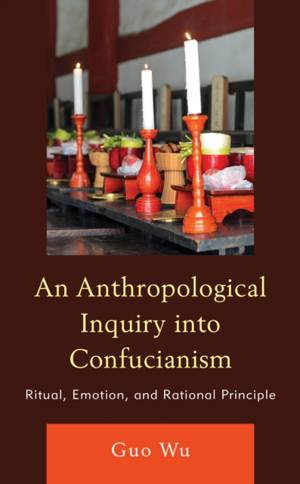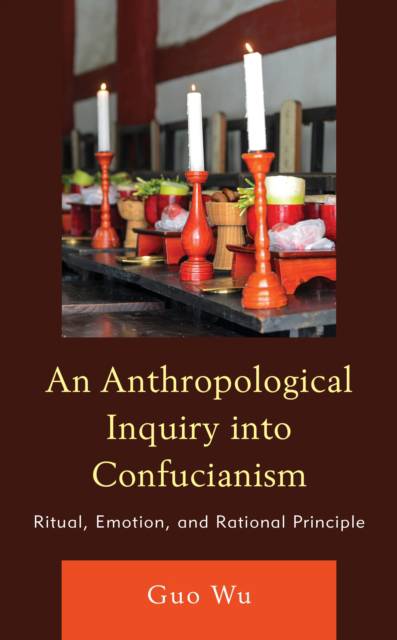
- Afhalen na 1 uur in een winkel met voorraad
- Gratis thuislevering in België vanaf € 30
- Ruim aanbod met 7 miljoen producten
- Afhalen na 1 uur in een winkel met voorraad
- Gratis thuislevering in België vanaf € 30
- Ruim aanbod met 7 miljoen producten
Zoeken
An Anthropological Inquiry Into Confucianism
Ritual, Emotion, and Rational Principle
Guo Wu
Hardcover | Engels
€ 152,95
+ 305 punten
Uitvoering
Omschrijving
An Anthropological Inquiry into Confucianism provides a chronological, historicized reappraisal of Confucianism as a belief system and a way of life that revolves around three key concepts: ritual (Li), emotion (qing), and rational principle (li). Instead of examining all pertinent concepts of Confucianism, the book focuses on how Confucian thinkers grappled with these three words and tried to balance them throughout multiple dynasties and by polemics an practice performing rites in daily life. Informed by the theory and perspectives of anthropology, Guo Wu revisits the origin of Confucianism and treats it as part of the legacy of pre-textual worshipping and funerary rites which are incorporated, recorded, and interpreted by Confucians. An anthropological angle continues to flesh out the extant Confucian classics by reinterpreting the parts concerning the human-human, human-animal, and human-sacred objects relations. Modern anthropological studies are referenced to showed how Confucian ritualism permeated to the lifeworld of Chinese villages since the Song dynasty and revived in Ming-Qing dynasties along with a resurgent interest in the expression of human emotions, which had an inherent tension with (Heavenly) rational principle. The book concludes that the Confucian balancing of the triad continues into the 21st century along with its revival in China.
Specificaties
Betrokkenen
- Auteur(s):
- Uitgeverij:
Inhoud
- Aantal bladzijden:
- 166
- Taal:
- Engels
Eigenschappen
- Productcode (EAN):
- 9781793654311
- Verschijningsdatum:
- 24/03/2022
- Uitvoering:
- Hardcover
- Formaat:
- Genaaid
- Afmetingen:
- 152 mm x 229 mm
- Gewicht:
- 412 g

Alleen bij Standaard Boekhandel
+ 305 punten op je klantenkaart van Standaard Boekhandel
Beoordelingen
We publiceren alleen reviews die voldoen aan de voorwaarden voor reviews. Bekijk onze voorwaarden voor reviews.











